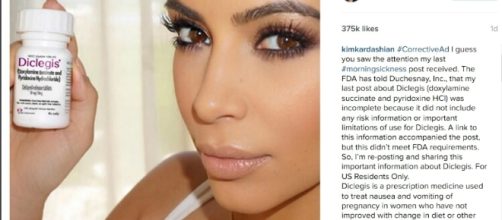For those who are not exactly aware of how celebrities, stars, and influencers earn money from social media posts, endorsers actually pay these people huge sums of money for them to showcase their products. However, due to the way social media is setup, there is really no way of knowing if a certain celebrity is personally endorsing the product or if they were paid to do so.
New rules for Instagram advertising
The Federal Trade Commission (FTC) aims to rectify this problem by formally implementing a new guideline aimed at clearly separated paid endorsements from personal ones.
The agency has reportedly already sent out over 90 letters to the biggest influencers on Instagram, informing them to follow the new guidelines. The influencers include celebrities, models, athletes, actors, and other famous personalities with huge numbers of followers.
Clear labeling of posts
According to the FTC, all endorsement with "material connections," either financial or material, should be clearly stated at the beginning of the caption to inform audiences whether or not the product or service being featured has been sponsored. The aim of the agency is to make sure that there is a fair playing ground for other endorsers who have been building their credibility without sponsorships.
No shortcuts
Influencers were apparently asked to place the sponsorship or endorsement disclosure within the first three lines of a photo's caption. The statement should not fall below the "more" button, which is the part of the caption that user must click on in order to reveal. Hashtags to reveal the sponsorship, such as #sp, #sponsoredpost, #thanks[Brand], #sponsoredby[Brand] are also insufficient as a valid disclosure.
A million dollar advertising industry
A lot of famous social media personalities earn their living through the posts they make on sites such as Instagram. According to US Weekly, Kim Kardashian alone receives over $500,00 for a single campaign from one endorser. Other users who have more than 3 million followers can expect more than $75,000 for each post they make that showcases a certain product.
Advertisers are constantly on the lookout for these influencers as the people that look at their posts are all potential customers.
The US FTC mentioned that the new guideline was a response to a petition filed by the non-profit consumer rights advocacy group, Public Citizens. A similar move was also conducted in Australia, where the Australian Association of National Advertisers also launched a similar guideline for local social media influencers.

